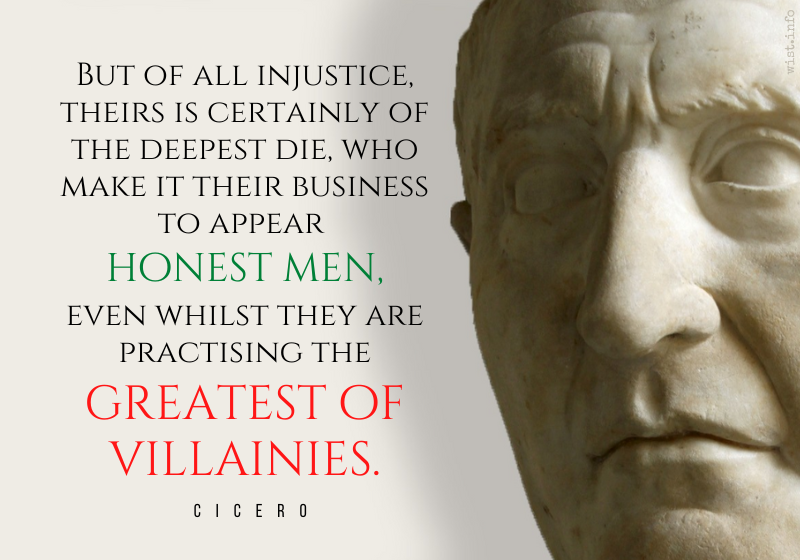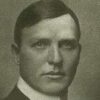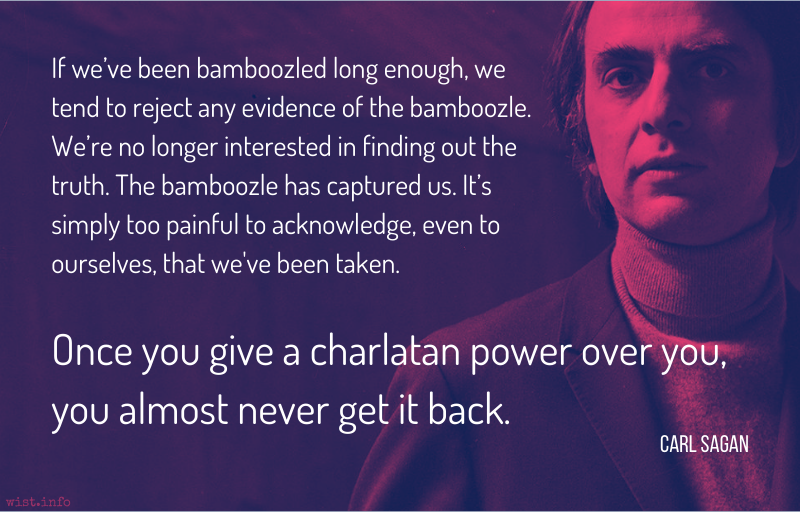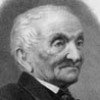But so long as men are not trained to withhold judgment in the absence of evidence, they will be led astray by cocksure prophets, and it is likely that their leaders will be either ignorant fanatics or dishonest charlatans. To endure uncertainty is difficult, but so are most of the other virtues. For the learning of every virtue there is an appropriate discipline, and for the learning of suspended judgment the best discipline is philosophy.
Bertrand Russell (1872-1970) English mathematician and philosopher
“Philosophy for Laymen,” Universities Quarterly (1946-11)
(Source)
Reprinted in Unpopular Essays, ch. 2 (1951).
Quotations about:
fraud
Note not all quotations have been tagged, so Search may find additional quotes on this topic.
All men are frauds. The only difference between them is that some admit it. I myself deny it.
H. L. Mencken (1880-1956) American writer and journalist [Henry Lewis Mencken]
A Little Book in C Major, ch. 2, § 16 (1916)
(Source)
Fraud, which so gnaweth at all men’s conscience,
A man may use on one who trusts him best
And on him also who risks no confidence.
This latter mode seems only to arrest
The love which Nature meaneth to endure;
Hence in the second circle huddled nest
Hypocrisy, flattery; they who would conjure
By spells; and simony; the thief, the cheat,
Pandars and barrators, and the like ordure.[La frode, ond’ogne coscïenza è morsa,
può l’omo usare in colui che ‘n lui fida
e in quel che fidanza non imborsa.
Questo modo di retro par ch’incida
pur lo vinco d’amor che fa natura;
onde nel cerchio secondo s’annida
ipocresia, lusinghe e chi affattura,
falsità, ladroneccio e simonia,
ruffian, baratti e simile lordura.]Dante Alighieri (1265-1321) Italian poet
The Divine Comedy [Divina Commedia], Book 1 “Inferno,” Canto 11, l. 52ff (11.52-60) [Virgil] (1309) [tr. Binyon (1943)]
(Source)
On the punishment of common fraudsters, who do not betray a personal trust but only the natural love of humanity. This is still deemed worse, in Dante's cosmology, than deadly "bestial" violence.
Barratry is the sale of justice, employment, or public offices, going alongside simony, the sale of holy offices.
(Source (Italian)). Alternate translations:
That Fraud of which each Conscience feels the pangs
Man may commit 'gainst those who do confide
In him, as well as those who trust him not.
The first unhappily destroys the Bond
In general by Nature form'd: from whence
Confined in the second Circle are
The Hypocrites, the Flatterers, and they
Who practice Coz'ning, Sorcery, and Theft,
Base Simony, procuring with a smile,
Masked Deceit, and all such filthy tricks.
[tr. Rogers (1782), l. 53ff]
Fraud skulks below with all her various brood,
There darkling dwell the foes of public good.
The pilf'rer, and the cheat, his dark ally:
With those, whose felon hand their trust betray'd,
Hypocrisy in faintly garb array'd.
Corruption foul, and frontless Perjury.
[tr. Boyd (1802), st. 8]
Fraud, that in every conscience leaves a sting,
May be by man employ’d on one, whose trust
He wins, or on another who withholds
Strict confidence. Seems as the latter way
Broke but the bond of love which Nature makes.
Whence in the second circle have their nest
Dissimulation, witchcraft, flatteries,
Theft, falsehood, simony, all who seduce
To lust, or set their honesty at pawn,
With such vile scum as these.
[tr. Cary (1814)]
Fraud, to the stricken conscience inly known,
Might man devise on him who faith disbursed,
And eke on him who credence had not shown.
The bond of love which nature framed at first.
But only that, the latter mode hath slain,
Whence nesting in the second orb lie curst
Hypocrites, and flatterers, and the wizard train,
Falseness, and simonies, and pilferers' trade,
Panders, and cheats, and all of foulest stain.
[tr. Dayman (1843)]
Fraud, which gnaws every conscience, a man may practice upon one who confides in him; and upon him who reposes no confidence.
This latter mode seems only to cut off the bond of love which Nature makes: hence in the second circle nests
hypocrisy, flattery, sorcerers, cheating, theft and simony, pandars, barrators, and like filth.
[tr. Carlyle (1849)]
And fraud, that every conscience can corrode --
Fraud may be practiced against them who trust,
And those who put no confidence in dust.
This seems to come behind, it only slays
The kindly chains of love that nature binds
Hence, in the lower circle, station finds
Hypocrisy, flattery and sorcery;
Falsification, robbery, simony,
Seduction, quarrels, and brutality.
[tr. Bannerman (1850)]
That fraud, which sharply, ev'ry conscience bites,
Man against those who trust in him may use,
Or against those by whom no trust is giv'n.
This latter seems to rend in twain the bond
Which Nature in her love for us hath made;
Whence in the second circle such are held;
Magic, hypocrisy, and flatters,
Vile falsehood, robbery and simony,
Panders and Userers, and such foul stuff.
[tr. Johnston (1867)]
Fraud, wherewithal is every conscience stung,
A man may practise upon him who trusts,
And him who doth no confidence imburse.
This latter mode, it would appear, dissevers
Only the bond of love which Nature makes;
Wherefore within the second circle nestle
Hypocrisy, flattery, and who deals in magic,
Falsification, theft, and simony,
Panders, and barrators, and the like filth.
[tr. Longfellow (1867)]
The fraud, wherewith every conscience is pricked, man can practise towards the one who trusts him, and towards him who has no confidence in store. This latter mode seems to destroy only the bond of love that nature makes; whence in the second circle have their nests hypocrisy, flatteries, and whoso uses arts; forgery, robbery, and simony; pandars, jobbers, and suchlike filth.
[tr. Butler (1885)]
Such fraud, for which all must compunction feel.
Can man exert 'gainst him whose trust he shares,
And him whose thoughts no confidence reveal.
This latter fashion all unseemly tears
The golden chain of love which Nature weaves.
Whence gather in the second circle's lairs
Hypocrisy, all flattery that deceives,
Witchcraft, lies, thefts, the Simoniac blot.
Panders, chicaners, and all similar thieves.
[tr. Minchin (1885)]
Fraud, by which every conscience is bitten, man may practice on one that confides in him, or on one that owns no confidence. This latter mode seemeth to destroy only the bond of love that nature makes; wherefore in the second circle nestle hypocrisy, flatteries, and sorcerers, falsity, robbery, and simony, panders, barrators, and such like filth.
[tr. Norton (1892)]
Fraud, with which there is no conscience but is bitten, a man may practise upon one who putteth his trust in him; and upon one who giveth no credit for fidelity. This last kind seemeth only to sever the bond of love which nature weaveth; and therefore is it that in the second circle there nestle hypocrisy, flattery, workers of sorcery, treachery, robbery and simony, panders, barrators, and such-like refuse.
[tr. Sullivan (1893)]
Fraud, wherewithal is bitten every conscience,
A man may use regarding one who trusts him,
Or one who has no store of trust to deal with.
This latter way, as it would seem, slays only
The tie of love that nature itself fashions;
Whence make their nest within the second circle
Hypocrisy, smooth speeches, and bewitchment,
Forgery, thieving, and the sin of Simon,
Panders, and jobbers, and the like offscouring.
[tr. Griffith (1908)]
Fraud, which always stings the conscience, a man may practice on one who confides in him or on one who does not so place his confidence; it is evident that this latter way destroys simply the bond of love which nature makes, so that in the next circle, hypocrisy, flatteries, sorceries, falsifications, theft, and simony, panders, jobbers, and like filth have their nest.
[tr. Sinclair (1939)]
Fraud, which gnaws at every conscience, may be a breach
Of trust against the confiding, or deceive
Such as repose no confidence; though each
Is fraud, the latter sort seems but to cleave
The general bond of love and Nature's tie;
So the second circle opens to receive
Hypocrites, flatterers, dealers in sorcery,
Panders and cheats, and all such filthy stuff,
With theft, and simony and barratry.
[tr. Sayers (1949)]
Fraud, which is a canker to every conscience,
may be practiced by a man on those who trust him,
and on those who have reposed no confidence.
This latter mode seems only to deny
the bond of love which all men have from Nature;
therefore within the second circle lie
simoniacs, sycophants, and hypocrites,
falsifiers, thieves, and sorcerers,
grafters, pimps, and all such filthy cheats.
[tr. Ciardi (1954)]
Fraud, which gnaws at every conscience, a man may practice upon one who trusts in him, or upon one who reposes no condifence. This altter way seems to sever only the bond of love which nature makes; wherefore in the second circle hypocrisy, flatteries, sorcerers, falsity, theft, simony, panders, barratry, and like filth have their nest.
[tr. Singleton (1970)]
Fraud, that gnaws the conscience of its servants,
can be used on one who puts his trust in you
or else on one who has no trust invested.
This latter sort seems only to destroy
the bond of love that Nature gives to man;
so in the second circle there are nests
of hypocrites, flatterers, dabblers in sorcery,
falsifiers, thieves and simonists,
panders, seducers, grafters and like filth.
[tr. Musa (1971)]
Now fraud, that eats away at every conscience,
is praticed by a man against another
who trusts in him, or one who has no trust.
This latter way seems only to cut off
the bond of love that nature forges; thus,
nestled within the second circle are:
hypocrisy and flattery, sorcerers,
and falsifiers, simony, and theft,
and barrators and panders and like trash.
[tr. Mandelbaum (1980)]
Fraud, by which every conscience is bitten,
A man may practice on a person who trusts him
Or upon one who has no confidence in him.
This latter mode cuts only the bond of love
Which nature itself establishes;
And so there are, lodged in the second circle,
Hypocrisy, flatterers, and those who delude,
Falsity, thieving and simony,
Pimps, trouble-makers, and all such-like scum.
[tr. Sisson (1981)]
Fraud, which bites every conscience, a man may play
Either on one who trusts him, or one who does not.
The latter of the two is seen to destroy
Only those bonds of love that nature makes:
So in the second circle hypocrisy,
Flatterers, sorcery, larceny, simoniacs,
With pimps, barrators, and such filth have their nest.
[tr. Pinsky (1994), ll. 53-59]
Fraud, which bites at every mind, a man can use against one who trusts in him or against one who has in his purse no cause for trust.
This latter mode seems to cut solely into the bond of love that Nature makes; thus in the second circle find their nest
hypocrisy, flattery, casters of spells, impersonators, thievery and simony, panders, embezzlers, and similar filth.
[tr. Durling (1996)]
Human beings may practise deceit, which gnaws at every conscience, on one who trusts them, or on one who places no trust. This latter form of fraud only severs the bond of love that Nature created, and so, in the eighth circle, are nested hypocrisy; sorcery; flattery; cheating; theft and selling of holy orders; pimps; corrupters of public office; and similar filth.
[tr. Kline (2002)]
As for deceit -- which gnaws all rational minds --
we practise this on those who trust in us,
or those whose pockets have no room for trust.
Fraud of the second kind will only gash
the ligature of love that Nature forms:
and therefore in great Circle Two there nests
smarm and hypocrisy, the casting-up of spells,
impersonation, thievery, crooked priests,
embezzlement and pimping, such like scum.
[tr. Kirkpatrick (2006)]
Fraud gnaws at every conscience,
whether used on him who trusted
or on one who lacked such faith.
Fraud against the latter only severs
the bond of love that nature makes.
Thus in the second circle nest
hypocrisy, flatteries, and sorcerers;
lies, theft, and simony;
panders, barrators, and all such filth.[tr. Hollander/Hollander (2007)]
Fraud will gnaw at the conscience, but a man may bury
His heart and cheat the people who believe in him --
But trust's not needed, just opportunity.
This sinning slices away the soft-tied tether
Of love, prepared for us by Nature. The second
Circle is therefore a nest for flatterers
And hypocrites and liars, and those who press
Illiterate fools for high Church office, well-paid
For their filthy work, and bawds, and all such festering
Sores.
[tr. Raffel (2010)]
Fraud eats the conscience, whether used against
Those who trust us, or those who trust us not.
In the latter case, the bonds of love dispensed
By nature are undone. Thus you have got,
In Circle Eight, toadies and hypocrites,
Magicians, forgers, thieves, thugs, dealers in
Holy preferment, everything that fits
The definition of sheer filth.
[tr. James (2013)]
Of all malice that makes of Heaven a foe
The end is injury, and all such end won
By force or fraud worketh another’s woe.
But since fraud is a vice of man’s alone,
It more offends God: so are lowest set
The fraudulent, and the heavier is their groan.[D’ogne malizia, ch’odio in cielo acquista,
ingiuria è ‘l fine, ed ogne fin cotale
o con forza o con frode altrui contrista.
Ma perché frode è de l’uom proprio male,
più spiace a Dio; e però stan di sotto
li frodolenti, e più dolor li assale.]Dante Alighieri (1265-1321) Italian poet
The Divine Comedy [Divina Commedia], Book 1 “Inferno,” Canto 11, l. 22ff (11.22-27) [Virgil] (1309) [tr. Binyon (1943)]
(Source)
(Source (Italian)). Alternate translations:
Of ev'ry Vice which odious is in Heav'n
To injure is the purport, and the end;
Either by Force, or Fraud. But as to Man
Fraud is peculiar, it more God offends:
Therefore the fraudulent are lower plac'd,
And greater punishment and pains endure.
[tr. Rogers (1782), l. 21ff]
Above the Sons of Violence reside,
The bands of Fraud below together hide;
(Vile Fraud! The heav'n-born soul's peculiar blot!)
For this, in fiercer pains, the traitors keep
Their horrid vigils far in yonder deep;
Hated of Heav'n, and fill the lowest lot.
[tr. Boyd (1802), st. 5]
Of all malicious act abhorr’d in heaven,
The end is injury; and all such end
Either by force or fraud works other’s woe
But fraud, because of man peculiar evil,
To God is more displeasing; and beneath
The fraudulent are therefore doom’d to’ endure
Severer pang.
[tr. Cary (1814)]
Of each malicious act, abhorred on high.
Injustice is the end: for others' woe
Must all such ends or force or fraud apply.
But fraud in man his proper vice doth show,
To God more odious; wherefore deeper here
The fraudful sink, and mourn a sharper throe.
[tr. Dayman (1843)]
Of all malice, which gains hatred in Heaven, the end is injury; and every such end, either by force or by fraud, aggrieveth others.
But because fraud is a vice peculiar to man, it more displeases God; and therefore the fraudulent are placed beneath, and more pain assails them.
[tr. Carlyle (1849)]
Of evil deed, that's stamped with hate in heaven,
Is injury the end. Each end's attained
With force or fraud, by which another's pained.
Since fraud is then the native ill of man,
It more displeases God; beneath the vault,
The fraudulent the deeper pains assault.
[tr. Bannerman (1850)]
Of ev'ry malice which just heav'n abhors,
To injure is the end; and each such end,
Either by force or fraud, makes others grieve.
But since of man fraud is the proper sin,
More it displeases God; and so beneath
Are plac'd the fraudulent with heavier pains.
[tr. Johnston (1867)]
Of every malice that wins hate in Heaven,
Injury is the end; and all such end
Either by force or fraud afflicteth others.
But because fraud is man's peculiar vice,
More it displeases God; and so stand lowest
The fraudulent, and greater dole assails them.
[tr. Longfellow (1867)]
Of every badness which earns hatred in heaven, injury is the end; and every such end either by force or by fraud causes grief to another.
But because fraud is an ill peculiar to man, it more displeases God; and for this cause the fraudulent have their station below, and woe assails them more.
[tr. Butler (1885)]
Of every malice that in Heaven wins hate
The end is injury, and each such plan
By force or fraud on some wreaks woeful fate.
Since fraud is ill peculiar unto man
God it displeases more, and hence more low
The fraudulent are doomed to greater pain.
[tr. Minchin (1885)]
Of every malice that wins hate in heaven injury is the end, and every such end afflicts others either by force or by fraud. But because fraud is the peculiar sin of man, it most displeaseth God; and therefore the fraudulent are the lower, and more woe assails them.
[tr. Norton (1892)]
Of every evil act that earneth hate in Heaven, the end is injury; and every such end, by either violence or fraud, heapeth sorrow upon others. But forasmuch as fraud is man's peculiar vice, it is the more displeasing unto God ; and therefore they who dealt in fraud are set beneath, and greater is the torture that doth afflict them.
[tr. Sullivan (1893)]
All wickedness that lays up hate in heaven
Injustice hath for end, and such end alway,
Either by force or fraud, afflicts another:
But, seeing that fraud is man's peculiar evil,
More it displeases God: therefore are lowest
The fraudulent, and greater woe assails them.
[tr. Griffith (1908)]
Every kind of wickedness that gains the hatred of Heaven has injustice for its end, and every such end afflicts someone either by force or fraud; but because fraud is sin peculiar to man it is more offensive to God, and for that reason the fraudulent have their place lower nad more pain assails them.
[tr. Sinclair (1939)]
Of all malicious wrong that earns Heaven's hate
The end is injury; all such ends are won
Either by force or fraud. Both perpetuate
Evil to others; but since man alone
Is capable of fraud, God hates that worst;
The fraudulent lie lowest, then and groan
Deepest.
[tr. Sayers (1949)]
Malice is the sin most hated by God
And the aim of malice is to injure others
whether by fraud or violence. But since fraud
is the vice fo which man alone is capable,
God loathes it most. Therefore, the fraudulent
are place below, and their torment is more painful.
[tr. Ciardi (1954)]
Of every malice that gains hatred in Heaven the end is injustice; and every such end, either by force or by fraud, afflicts another. But because fraud is an evil peculiar to man, it more displeases God, and therefore the fraudulent are the lower, and more pain assails them.
[tr. Singleton (1970)]
All malice has injustice as its end,
an end achieved by violence or by fraud;
while both are sins that earn the hate of Heaven,
since fraud belongs exclusively to man,
God hates it more and, therefore, far below,
the fraudulent are placed and suffer most.
[tr. Musa (1971)]
Of every malice that earns hate in Heaven,
injustice is the end; and each such end
by force or fraud brings harm to other men.
However, fraud is man's peculiar vice;
God finds it more displeasing -- and therefore,
the fraudulent are lower, suffering more.
[tr. Mandelbaum (1980)]
The object of all malice, which earns heaven's hatred,
Is injury; every object of that kind
Causes distress to others by force or fraud.
And because fraud is an evil peculiar to men,
It displeases God the more; and therefore the fraudulent
are placed beneath and greater pain assail them.
[tr. Sisson (1981)]
The end of every wickedness that feels
Heaven's s hatred is injustice -- and each end
Of this kind, whether by force or fraud, afflicts
Some other person. But since fraud is found
In humankind as its peculiar vice,
It angers God more: so the fraudulent
Are lower, and suffer more unhappiness.
[tr. Pinsky (1994), l. 21ff]
Of every malice gaining the hatred of Heaven, injustice is the goal, and efvery such goal injures someone either with force or with fraud.
But because fraud is an evil proper to man, it is more displeasing to God; and therefore the fraudulent have a lower place and greater pain assails them.
[tr. Durling (1996)]
The outcome of all maliciousness, that Heaven hates, is harm: and every such outcome, hurts others, either by force or deceit. But because deceit is a vice peculiar to human beings, it displeases God more, and therefore the fraudulent are placed below, and more pain grieves them.
[tr. Kline (2002)]
Malice is aimed in all its forms -- and thus
incurs the hatred of Heaven -- at gross injustice,
and, aiming so, harms others, by deceit or force.
Deceit, though, is specifically a human wrong,
and hence displeases God the more. Liars
are therefore deeper down, and tortured worse.
[tr. Kirkpatrick (2006)]
Every evil deed despised in Heaven
has as its end injustice. Each such end
harms someone else through either force or fraud.
But since the vice of fraud is man's alone,
it more displeases God, and thus the fraudulent
are lower down, assailed by greater pain.
[tr. Hollander/Hollander (2007)]
Hated by Heaven, every conscious
sin will end in injustice, and each new sin,
By force or fraud, creates the same result.
But since such fraud is a sin unique to men,
God hates it more. So sinners guilty of fraud
Go farther down, and deeper pain attacks them.
[tr. Raffel (2010)]
Crimes Heaven hates have for their end
Injustice, and that end afflicts someone
Either by force or fraud, and must offend
The Lord, for fraud is human, and ills done
By humans please Him least, and therefore they,
The tricksters, lie down and suffer more.
[tr. James (2013)]
But of all injustice, theirs is certainly of the deepest die, who make it their business to appear honest men, even whilst they are practising the greatest of villainies.
[Totius autem iniustitiae nulla capitalior quam eorum, qui tum, cum maxime fallunt, id agunt, ut viri boni esse videantur.]
Marcus Tullius Cicero (106-43 BC) Roman orator, statesman, philosopher
De Officiis [On Duties; On Moral Duty; The Offices], Book 1, ch. 13 (1.13) / sec. 41 (44 BC) [tr. Cockman (1699)]
(Source)
(Source (Latin)). Alternate translations:
No act of injustice is more pernicious than theirs, who while they are attempting the greatest deceit, labor to appear good men.
[tr. McCartney (1798)]
But in the whole system of villainy, none is more capital than that of the men, who, when they most deceive, so manage as that they may seem to be virtuous men.
[tr. Edmonds (1865)]
But of all forms of injustice, none is more heinous than that of the men who, while they practise fraud to the utmost of their ability, do it in such a way that they appear to be good men.
[tr. Peabody (1883)]
The most criminal injustice is that of the hypocrite who hides an act of treachery under the cloak of virtue.
[tr. Gardiner (1899)]
No iniquity is more deadly than that of those who, when they are most at fault, so behave as to seem men of integrity.
[ed. Harbottle (1906)]
But of all forms of injustice, none is more flagrant than that of the hypocrite who, at the very moment when he is most false, makes it his business to appear virtuous.
[tr. Miller (1913)]
Taking all forms of injustice into account, none is more deadly than that practiced by people who act as if they are good men when they are being most treacherous.
[tr. Edinger (1974)]
Exercise caution in your business affairs;
for the world is full of trickery.
But let this not blind you to what virtue there is;
many persons strive for high ideals;
and everywhere life is full of heroism.
Not to oversee Workmen, is to leave them your Purse open.
Benjamin Franklin (1706-1790) American statesman, scientist, philosopher, aphorist
Poor Richard’s Almanack (Nov 1751)
(Source)
One of the saddest lessons of history is this: If we’ve been bamboozled long enough, we tend to reject any evidence of the bamboozle. We’re no longer interested in finding out the truth. The bamboozle has captured us. It’s simply too painful to acknowledge, even to ourselves, that we’ve been taken. Once you give a charlatan power over you, you almost never get it back.
Carl Sagan (1934-1996) American scientist and writer
The Demon-Haunted World, ch. 13 (1995)
(Source)
It will not bother me in the hour of death to reflect that I have been ‘had for a sucker’ by any number of impostors: but it would be a torment to know that one had refused even one person in need. After all, the parable of the sheep and goats makes our duty perfectly plain, doesn’t it? Another thing that annoys me is when people say ‘Why did you give that man money? He’ll probably go and drink it.’ My reply is ‘But if I’d kept [it] I should probably have drunk it.’
Nor can a man dupe others long, who has not duped himself first.
Ralph Waldo Emerson (1803-1882) American essayist, lecturer, poet
Journal (1852)
(Source)
Often rendered: "A man cannot dupe others long, who has not duped himself first."
The Christian priesthood, finding the doctrines of Christ levelled to every understanding, and too plain to need explanation, saw, in the mysticisms of Plato, materials with which they might build up an artificial system which might, from it’s indistinctness, admit everlasting controversy, give employment for their order, and introduce it to profit, power & pre-eminence. The doctrines which flowed from the lips of Jesus himself are within the comprehension of a child; but thousands of volumes have not yet explained the Platonisms engrafted on them: and for this obvious reason that nonsense can never be explained.
Thomas Jefferson (1743-1826) American political philosopher, polymath, statesman, US President (1801-09)
Letter to John Adams (5 Jul 1814)
(Source)
Better be cheated in the price than in the quality of goods.
[Más vale ser engañado en el precio que en la mercadería.]
Baltasar Gracián y Morales (1601-1658) Spanish Jesuit priest, writer, philosopher
The Art of Worldly Wisdom [Oráculo Manual y Arte de Prudencia], § 157 (1647) [tr. Jacobs (1892)]
(Source)
(Source (Spanish)). Alternate translations:
It is better to be deceived in the Price, than in the Commodity.
[Flesher ed. (1685)]
Far better to be cheated in the price, than in the goods.
[tr. Fischer (1937)]
Better to be cheated by the price than by the merchandise.
[tr. Maurer (1992)]
… [P]riests of the different religious sects, who dread the advance of science as witches do the approach of day-light; and scowl on the fatal harbinger announcing the subversion of the duperies on which they live.
Thomas Jefferson (1743-1826) American political philosopher, polymath, statesman, US President (1801-09)
Letter to José Corrêa da Serra (11 Apr 1820)
(Source)
On resistance, particularly from Presbyterians, to the founding of the University of Virginia.
But the whole history of these books [the Bible] is so defective and doubtful that it seems vain to attempt minute enquiry into it: and such tricks have been plaid with their text, and with the texts of other books relating to them, that we have a right, from that cause, to entertain much doubt what parts of them are genuine. In the New testament there is internal evidence that parts of it have proceeded from an extraordinary man; and that other parts are of the fabric of very inferior minds. It is as easy to separate those parts, as to pick out diamonds from dunghills.
Thomas Jefferson (1743-1826) American political philosopher, polymath, statesman, US President (1801-09)
Letter to John Adams (24 Jan 1814)
(Source)
Another belief of mine: that everyone else my age is an adult, whereas I am merely in disguise.
Margaret Atwood (b. 1939) Canadian writer, literary critic, environmental activist
Cat’s Eye, Part 2 (1988)
(Source)
To this war of every man against every man, this also is consequent; that nothing can be unjust. The notions of right and wrong, justice and injustice, have there no place. Where there is no common power, there is no law; where no law, no injustice. Force and fraud are in war the two cardinal virtues.
Take heed: Most Men will cheat without Scruple where they can do it without Fear.
Thomas Fuller (1654-1734) English physician, preacher, aphorist, writer
Introductio ad Prudentiam, # 525 (1725)
(Source)
He that’s cheated twice by the same Man is an Accomplice with the Cheater.
Thomas Fuller (1654-1734) English physician, preacher, aphorist, writer
Gnomologia: Adages and Proverbs, #2281 (1732)
(Source)
Cheat me in the Price, but not in the Goods.
Thomas Fuller (1654-1734) English physician, preacher, aphorist, writer
Gnomologia: Adages and Proverbs, #1090 (1732)
(Source)

















